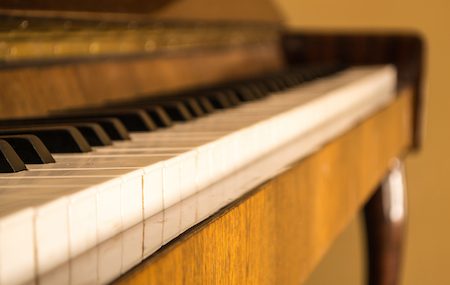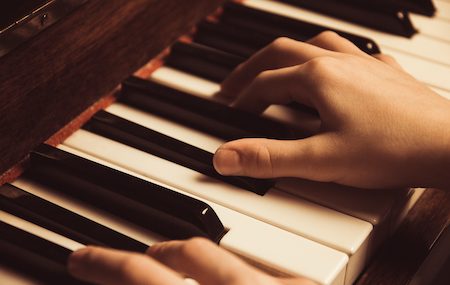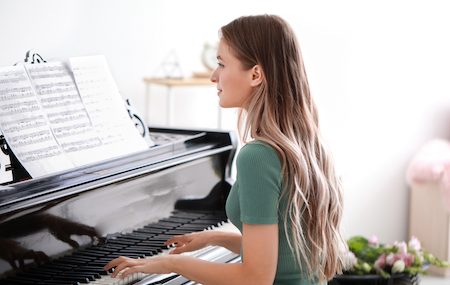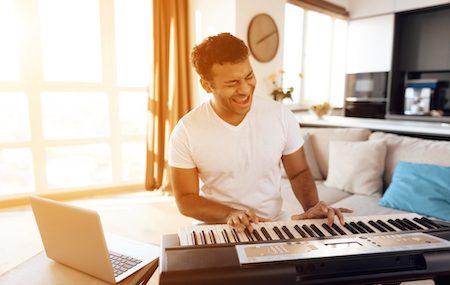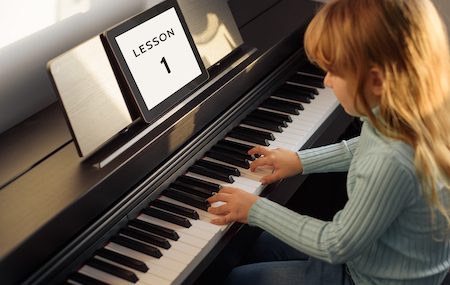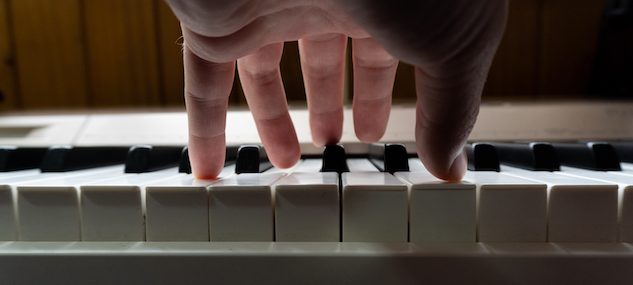If you’re a piano player, your piano is more than an instrument. It’s more than a piece of furniture sitting in your home. It’s a friend – one you take care of so it plays well every time you sit down at it.
Have you ever walked into a home where the homeowners didn’t have the same belief? There are piles of paper on the edge. There are watermarks from drinks and glasses. You could draw a picture in the amount of dust accumulating.
A piano requires regular maintenance to keep it in good working condition. While a technician can handle tuning, voicing, and other repair work, there are a few things you can do to keep your piano playable.
No drinks … Ever
Let’s get the most obvious out of the way. If you’re going to practice for any length of time, having water nearby might be beneficial. Place a table nearby. Use a water bottle and set it on the floor. But never place a glass anywhere on the finish of your piano, especially near the keys.
If liquid seeps in between the keys, it can quickly settle into the internal workings of the piano, and it may cause extensive damage. This can be a costly mistake. It can cause wood to warp. It can even allow mold or mildew to grow, depending on the amount of liquid spilled. Your best bet is to schedule an appointment with a technician as soon as possible and let them handle clean up.
Pay attention to placement
Wouldn’t your piano look perfect by the big plate glass windows, with a view that goes on forever just outside?
While it sounds beautiful. It might not be the best choice for placement. It depends on the environment. Pianos don’t do well in a climate that changes regularly. Will it experience direct sunlight? Is it near drafts or breezes that could change the temperature quickly?
Pianos enjoy a place inside your home with constant temperatures, and regulated humidity levels. Forty percent humidity is an ideal indoor climate. And be sure to place your piano away from vents and registers where it can receive a blast of conditioned air. Calm is better.
What the keylid is for
If you’re not playing, keep the keylid shut. It makes sense and can be good advice … sometimes.
In most cases, the keylid can protect dust and other particles from settling between the keys. It can prevent action issues and keep your piano playable for many years.
However, it’s never a good idea to keep the keylid closed indefinitely. Keys need proper light and air circulation to stay in good working condition. If you leave the keylid closed for an extended period of time, it can encourage mold growth inside the piano, especially if it’s in a dark or humid room.
Keep your piano healthy
The more you play your piano, the easier it will be to recognize potential problems.
If you have any questions about its playability, give us a call. From a simple tuning to an extensive renovation, we have experience with all levels of piano care, and can help you make the right choice to suit your needs.


